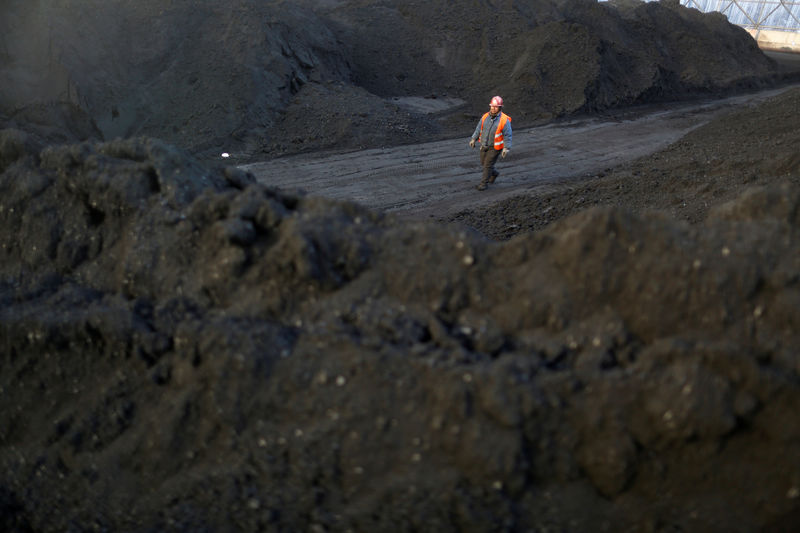By David Stanway and Andrew Galbraith
SHANGHAI (Reuters) - Chinese regulators are close to releasing new "green bond" standards that would exclude polluting fossil fuel projects from corporate financing channels designed to lift environmental standards, people familiar with the matter told Reuters.
Beijing has in recent years promoted new green financing methods to help industry pay for its transition to cleaner modes of growth.
But China's inclusion of "clean coal" in a 2015 central bank list of technologies eligible for green bonds has put the country at odds with global standards, a point of contention for some international investors and many environmental groups.
Two sources with direct knowledge of the situation say China's central bank, which regulates financial institution debt issuance and whose 2015 guidelines were adopted by other market regulators, has already revised the eligibility list. One of the people said the list is due to be published later this month. The People's Bank of China did not immediately respond to Reuters' request for comment.
"If confirmed, ending the policy of financing coal with green bonds would be a much-needed step in the right direction," said Liu Jinyan, senior campaigner with environmental group Greenpeace in Beijing.
"With no new coal projects taking money from the green bonds market, those funds can actually accelerate China's energy transition and green development," she said.
Of the $42.8 billion worth of green bonds issued in China last year, only $31.2 billion would have met global criteria, according to a report published at the end of February by the Climate Bonds Initiative (CBI), a non-profit group backing green bond standards.
The share of what CBI calls "internationally aligned" green bonds has been steadily increasing as China's institutions move to align themselves more with global markets.
The PBOC's revised criteria, however, would not apply to green "enterprise bonds", which are regulated by the National Development and Reform Commission (NDRC), the state planner, and are primarily issued by state-owned enterprises and unlisted companies.
In its "green industry" catalog of approved environmental sectors, the NDRC in February still included the production and utilization of "clean coal", allowing coal companies to issue "green enterprise bonds" to finance the installation of low-emission technology.
The NDRC did not immediately respond to request for comment.
Green bonds have already financed a number of big coal projects in China. Tianjin SDIC Jinneng Electric Power Co Ltd issued 200 million yuan ($29.81 million) in commercial paper on the interbank market in mid-2017 to finance a low-emissions coal-fired power plant.
Coal-to-chemical plants have also received billions of yuan in financing through green bonds, despite criticism from environmental groups.
Industry experts say the two-tiered regulatory framework - one under the PBOC and one under the NDRC - means some coal-related projects could still issue green bonds, although access to the most active green finance markets would be restricted.
"Many of the international investors and financiers have publicly announced plans to reduce their coal portfolio," said Herry Cho, head of sustainable finance for Asia Pacific at ING.
She said the NDRC catalog is already "largely aligned" with international standards, and even includes some categories, such as equipment related to renewable energy and resource recycling, that are not yet included in global guidelines.
Shengzhe Wang, counsel at Hogan Lovells in Shanghai, who has worked on green bonds in the U.K.-China Green Finance Taskforce, said it was unrealistic to expect the sudden exclusion of coal from all green financing in China.
"For the time being perhaps we have to put up with, make a compromise with clean coal," she said.
While that compromise may limit foreign involvement in the market, Peter Corne, managing partner at legal firm Dorsey & Whitney in Shanghai said green financing was still required to help clean up China's coal sector.
"I don't think it necessarily means there will be more coal projects because of it, because there has already been a moratorium for quite some time," said Corne, who follows China's environmental policies.
"Coal's not going to go away, and it will greatly accelerate our progress towards achieving emission goals if we do clean up the coal sector."
